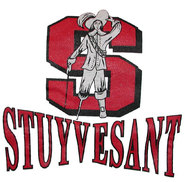 A coalition of educational and civil rights groups filed a federal complaint on Thursday saying that black and Hispanic students were disproportionately excluded from New York City’s most selective high schools because of a single-test admittance policy they say is racially discriminatory. I have a problem with this. I am a graduate of Peter Stuyvesant High School (class of 1975), one of the "elite" schools named in the lawsuit. I went to one of the worst Junior High Schools in Queens, NY. My teachers saw that myself and a few other students had potential and asked us if we ever considered going to a specialized HS. At the time I didn't even know about Stuyvesant. They helped us prepare for the exam. Every day after school we spent hours studying for the exam. We read dictionaries and we took practice exams. Our teachers did everything that they could to make sure that we were ready. They were there for us as long as we put in the work. 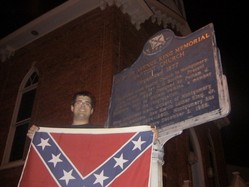 Click on the picture for a larger view This fall Matthew Heimback, a student at Towson State University in Maryland, proposed starting a white student union. Maybe we should allow these groups to organize. We should not be naïve and believe they will not organize just because a college or institution does not allow them to. These individuals will just go underground and do it anyway. I think that we should see them in the light of day and expose them for who they are. They should be tagged and tracked. They should be on watch lists. Considering the threat of mass executions like what happened in Colorado it may be better for us to know who they are. Heimbach, who prefers being associated with southern nationalists over white nationalists, said a photo of him holding a Confederate flag this summer in front of Dexter Avenue King Memorial Baptist Church, where Martin Luther King, Jr. pastored in Montgomery, Alabama, ought not to be misconstrued. “[The Confederate flag] has never been a symbol of race,” Heimbach said. “Someone who has no connection to Dixie, no connection to the confederacy just doesn’t understand it.” 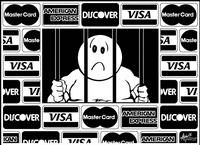 Today’s economic climate has created an opportunity for the “business savvy” to make money by preying on the poor. “Pay Lenders”, businesses that loan individual monies using their paycheck as collateral, are on the rise. These businesses charge high interest rates. In my opinion this is no more than a legalized version of loan sharking. The difference of course is that if you cannot pay you don’t have to worry about getting any bones broken, but you can possibly end up in jail. Our courts have felt the effect of budget cuts. As such they have become more focused on generating revenue in addition to their responsibilities as civil servants. Since the recession began, courts have increasingly had to fend for themselves by imposing fees on criminal defendants to address budget gaps. In Cambria County, Pa., for example, the Court of Common Pleas imposed 26 fees on a woman convicted of a drug crime, including $8 each for postage and judicial computers. In one State a $35 parking ticket ended up being $235 once all the fees were added. According to an article in the Huffington Post, incarcerating people for not paying fees that they can't afford isn't generating any government revenue -- it's just creating more government spending. For example, Rhode Island sent Ricardo Graham to prison for 40 days at a cost to the state of $4,000 because he couldn't pay $745. 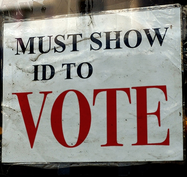 Although there have been some significant wins in the courts pertaining to voter ID and voter suppression tactics, do not think for one second that the battle is over and we can soley focus on registering voters and getting them to vote. Did you know in 46 states private citizens have the ability to challenge your right to vote? Not only can they challenge you prior to Election Day, in the 39 states that currently allow private citizens to challenge voters inside the polls, only 15 require challengers to produce documentation to support their claims. Similarly, of the 28 states that allow challenges before Election Day, only eight require challengers to provide reliable evidence that the voter is ineligible. These anemic proof requirements open up the process to abuse by political operatives seeking to use challenges to suppress or intimidate voters. They can literally park themselves at the polling locations, find someone they suspect, and make a challenge that you’re ineligible to vote. When that is done you will need to provide proof that you are indeed entitled to vote. 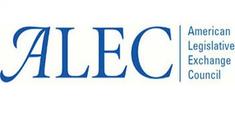 In a prior article I shared that at least 180 restrictive bills were introduced since the beginning of 2011 in 41 states. Texas, Wisconsin, Pennsylvania, Ohio, South Carolina, and Florida have received a lot of press coverage lately. What do all of these states have in common? Republican Governors. Currently there are 29 Republican, 20 Democrat, 1 Independent Governors in the US. To understand the effect this has on the promotion and introduction of voter ID and other voter suppression legislation, we need to explore how ALEC functions. Over 30 years ago a nonpartisan membership association for conservative state lawmakers who shared a common belief in limited government, free markets, federalism, and individual liberty was formed known as the American Legislative Exchange Council (ALEC). Their belief is that the states should share co-equal status with the federal government. |
EditorErnest R. Heyward is the Founder and President of the Marketplace for Social Awareness and Social Responsibility Inc. Categories
All
Archives
June 2020
|
MARKETPLACE FOR SOCIAL AWARENESS AND SOCIAL RESPONSIBILITY INC.



